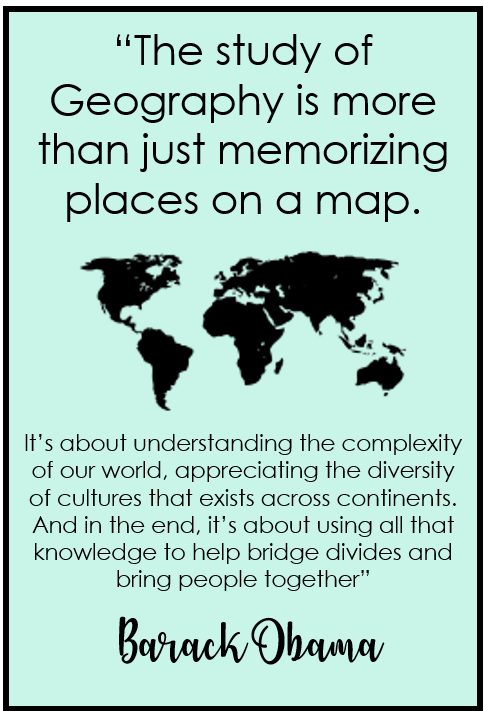Geography

What do we want our geography curriculum to achieve?
At St Peter’s, we strive for children to explore the world around them with curiosity and a sense of wonder. We want geography to spark a desire to understand how the Earth’s landscapes, environments and people are connected – both locally and globally. Our curriculum enables children to ask questions, investigate real-world issues and develop a duty of 'take care' of our planet.
We aim for geography to be engaging and purposeful – not just learning facts, but interpreting and evaluating information to form their own ideas. Children are encouraged to think critically, make connections between places, and reflect on how human choices impact the natural world. Through enquiry-based learning, fieldwork and mapwork, they become confident in collecting, analysing and presenting geographical information.
At St Peter’s, we want children to develop a deep appreciation for different cultures, communities and environments. We believe geography is key to nurturing global citizens who are informed, empathetic and ready to play a part in shaping a fairer, more sustainable world. Our core value of 'take care’ underpins our approach – empowering children to take care of the communities around them and their world.
Why is geography important to us?
We live in an interconnected world shaped by people, places and environments. Teaching geography equips children with the knowledge and skills to understand, navigate and contribute to an ever-changing global landscape. It lays the foundation for essential 21st-century competencies and nurtures a mindset of curiosity, critical thinking and global awareness.
Geography is not just about naming places – it's about asking questions, making connections, analysing data and considering human impact. It encourages children to think deeply about real-world issues, from climate change to urban development, and fosters the ability to interpret patterns, propose solutions and reflect on how we live. When children engage in geographical enquiry, fieldwork, and mapping, they learn to observe carefully, collect and present data, and draw informed conclusions – all skills with broad application in everyday life.
Geography integrates knowledge from subjects such as science, history and maths, and often involves collaborative tasks that develop communication, teamwork and empathy. Exploring the diversity of places and cultures helps children develop a sense of identity and belonging, while also appreciating the lives of others. Gaining insight into the world we share supports profound personal development – central to our core purpose at St Peter’s – and helps our children become thoughtful, responsible citizens of the future.
How do we develop knowledge and skills in geography?
Our geography curriculum is carefully sequenced to enable children to build upon their geographical knowledge and understanding as they progress through our school. At each stage, children are immersed in rich geographical vocabulary that is taught explicitly, developed over time and revisited regularly to ensure deep understanding. Learning activities are designed to develop both locational knowledge and geographical skills in line with the National Curriculum.
Children are supported to ask and investigate geographical questions, use maps, atlases and digital tools, interpret a range of sources such as photographs, graphs and data sets, and draw informed conclusions. Fieldwork opportunities allow pupils to observe, measure, record and present the human and physical features of local and contrasting environments. As children’s geographical thinking develops, they learn to compare places, identify patterns and reflect on the interaction between people and the environment.
Throughout our teaching, we encourage children to think like a geographer – to be curious about the world, to seek out connections and to consider how their actions affect the planet and the people who share it.
Children develop and deepen their knowledge across four key areas:
-
Locational Knowledge
-
Place Knowledge
-
Human and Physical Geography
-
Geographical Skills and Fieldwork
How do we use assessment in geography?
Assessments take place at the end of each term, linking to the topic that has been taught. These assessments take the form of ‘signature work’ take care challenges where the children can ‘show off’ their learning. Teachers have the opportunity to use their professional opinion and judgement whilst assessing children, through evidence that is written into their books as well as conversations with children and their participation within lessons. Attainment of children is shared with future class teachers / schools when required to ensure that for future years, the children continue to enhance their love for geography and access work at their own appropriate level. Lessons are assessed through a learning question at the beginning of each lesson. The aim is for all children to answer this question, regardless of their ability. Books are regularly marked in line with our marking and feedback policy, as well as oral feedback given within lessons.
How do we include and challenge all children in geography?
Everything we do at St Peter's is 'for children...for all'. Medium-term plans are organised to ensure access for all children, inclusive of our SEND and gifted learners. Scaffolding and stretch opportunities are built into every lesson. Knowledge organisers are used for children to refer to throughout each topic. Technical vocabulary is used within these to ensure children embed key words. SEND learners will have access to appropriate support as and when required, tailored to their own individual need.
